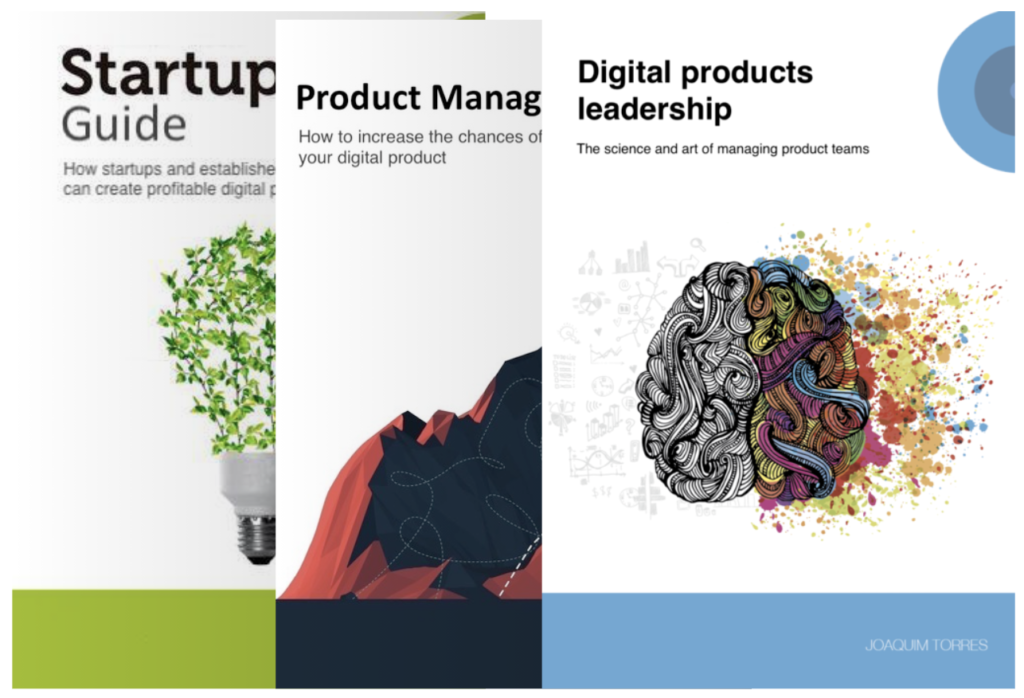End of life
19 de July, 2022What is the ideal team size?
2 de August, 2022This is a somewhat controversial question.
I’ve been seeing some interesting debates on this topic on Linkedin and WhatsApp groups in the Brazilian product management community so I want to share my experience on this topic. I have already shared it as part of the chapter “Feedback and performance evaluation” from my book Digital Product Leadership, but maybe it can be helpful as a standalone article to add another perspective on the topic.
Let me start with a disclaimer. The fact that 2 people disagree doesn’t necessarily mean that one them is wrong.
Having said that, the short answer to this question is it depends! (=
The need to understand the product domain
The need for a product manager to code depends on the product domain, i.e., the product topic. If what the product manager takes care of is a more technical product it is very important that the product manager has a technical background. Some product examples from Locaweb that are technical and needed a product manager with technical background are Website Hosting, Cloud Server and SMTP. However, even companies that do not sell technical products can have a part of their product with a more technical bias. At Conta Azul, we had APIs, integrations with fintechs (Iugu and Stone), and integration with the government finance systems in order to issue invoices, and at Gympass we had integration with gym management systems and HR systems. For these parts of the products, it is important to have a product manager with technical knowledge, since the main user of the product will be a technical person and the product objective is a technical objective.
On the other hand, a product like Locaweb’s Virtual Store, Gympass’ user app, or Lopes’ property search portal are products made for consumers in general. In my experience, it is not essential that the product manager has technical knowledge if she manages non-technical products. At Conta Azul we also had product for accountants. In this case it was quite important that the product manager understands accounting, to the point that some of our product manager were accountants and the ones that weren’t needed to go through courses to learn about accounting. Some of the product managers in my team that built product for accountants went to Accountants College and even used to work as accountants prior to make the career change to product management.
So this is key, a product manager must, let me repeat this, MUST understand about the domain of the product she will manage. If it is a technical product, a product for coders, it will be very beneficial that the product manager if she knows how to code. If it is a product for accountants, the more she knows about accounting, the better.
The need to understand coding
If the product is not for coders, as I mentioned earlier, it is fine if the product manager does not know how to code. She can be an amazing product manager, achieve amazing results both for her users as well as for the company that owns the product without knowing how to code.
However, it can be helpful. Technical knowledge helps a product manager understand how the product is made, and most probably can help her to be a better product manager. It helps a product manager understand the work done by the engineering team and can be useful in many decisions about the product, including prioritization and scope. Here goes two analogies that can help to better understand the benefit that knowing how to code brings to a product manager:
- A good Formula 1 racer doesn’t need to know how the car works, but if he does, he can certainly use that knowledge to be a better driver.
- Likewise, a guitar player does not need to know how to sing or play bass, drums, or piano to be a good guitarist, but most probably, this additional knowledge can help her be a better guitarist.
The additional knowledge can bring interesting insights to the product manager when she is taking care of her main responsibilities.
This does not mean that the product manager needs to be a coding expert. If she has no knowledge of coding, it would be interesting to take an introductory course in programming logic and experiment with making her first app. This experience will only benefit that person’s career.
What about knowing SQL?
If the product manager doesn’t already know, she must learn SQL. Access to data is increasingly democratic in companies and knowing SQL is essential so that the product manager can enjoy the data independently, without having to ask others to create their charts and dashboards. When we put Metabase as a data democratization solution at Conta Azul, I was so excited that I spent a whole week going to sleep at 2:00 am, because I was creating charts and dashboards to better understand how Conta Azul products were used. It was so fun! (=
Summing up
- The fact that 2 people disagree doesn’t necessarily mean that one them is wrong.
- The product manager MUST understand about the domain of the product she manages. If it is a technical product, a product for coders, it will be very beneficial that the product manager if she knows how to code. If it is a product for accountants, the more she knows about accounting, the better.
- If the product is not for coders, it is fine if the product manager does not know how to code. She can be an amazing product manager, achieve amazing results both for her users as well as for the company that owns the product without knowing how to code.
- However, technical knowledge helps a product manager understand how the product is made, and most probably can help her to be a better product manager. The same way that a Formula 1 race drive doesn’t need to know mechanics, but can benefit from this knowledge during his races.
- If the product manager doesn’t already know, she must learn SQL. Access to data is increasingly democratic in companies and knowing SQL is essential so that the product manager can enjoy the data independently, without having to ask others to create their charts and dashboards.
Product leadership advisor
I’ve been helping several product leaders (CPOs, heads of product, CTOs, CEOs, tech founders, and heads of digital transformation) extract more value and results from their digital products. Check here how I can help you and your company.
Digital Product Management Books
Do you work with digital products? Do you want to know more about how to manage a digital product to increase its chances of success, solve its user’s problems and achieve the company objectives? Check out my Digital Product Management bundle with my 3 books where I share what I learned during my 30+ years of experience in creating and managing digital products:
- Startup Guide: How startups and established companies can create profitable digital products
- Product Management: How to increase the chances of success of your digital product
- Leading Product Development: The art and science of managing product teams
You can also acquire the books individually, by clicking on their titles above.

